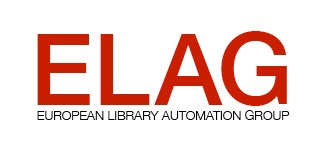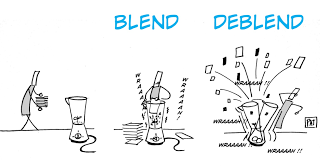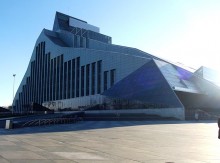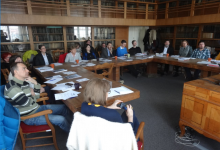It is with great pleasure to announce that the 42nd International Conference of the European Library Automation Group will be held at the National Library of Technology in Prague, Czech Republic from June 4 to 7 2018.
 The European Library Automation Group series of conferences focus on the application of information technology in libraries and documentation centers. For over forty years, the ELAG Conferences have provided library and IT professionals with the opportunity to discuss new technologies, to review on-going developments and to exchange best practices. Moreover, ELAG Conferences are the platform for librarians, IT professionals and other participants to discuss the current situation, challenges and advancements relating to libraries and of information technology.
The European Library Automation Group series of conferences focus on the application of information technology in libraries and documentation centers. For over forty years, the ELAG Conferences have provided library and IT professionals with the opportunity to discuss new technologies, to review on-going developments and to exchange best practices. Moreover, ELAG Conferences are the platform for librarians, IT professionals and other participants to discuss the current situation, challenges and advancements relating to libraries and of information technology.
The meetings aim at in depth discussions of particular library automation topics and at the promotion of informal exchange of ideas and experience. Topics of past conferences have included digital libraries, library portals, institutional repositories, web services, digital preservation, open source software and open access. The topics covered are technical and meant for participants with an appropriate technical background.
The ELAG Conferences are divided into bootcamp, presentation and workshop sessions. Due to this innovative and interactive structure ELAG Conferences provide participants with a way to learn from experts and veterans in a particular domain and to acquire new skills, enhance their knowledge and get a more in-depth view of a specific topic.

Theme of ELAG2018: BLEND/DEBLEND
Nowadays we are used to data being dispersed in different locations, formats and environments. We reference data, linking and blending them to be useful to our users. We started re-using data by harvesting OAI repositories and we ended up copying everything as-is instead of blending data using standard web protocols. The vision is that merging distributed data using web services (microservices) will enable us to better blend and re-use data. Yet, we are still living in a world of monolithic data structures; we need to go forward and try to use standard web data-formats and reconsider library data description rules in light of this. On the other hand, we are faced with monolithic legacy systems which, though moving to the cloud, are pretty hard to ‘deconstruct’. Here we should deblend as well. Our local IT infrastructure is also moving to a blended environment where web services and enterprise service buses are supposed to orchestrate a universal information environment. It is not an easy task to use the existing library systems in this kind of environment.
Call for participation and more info: https://elag.org/






 If you have interesting news and events to point out in the field of digital cultural heritage, we are waiting for your contribution.
If you have interesting news and events to point out in the field of digital cultural heritage, we are waiting for your contribution.
























